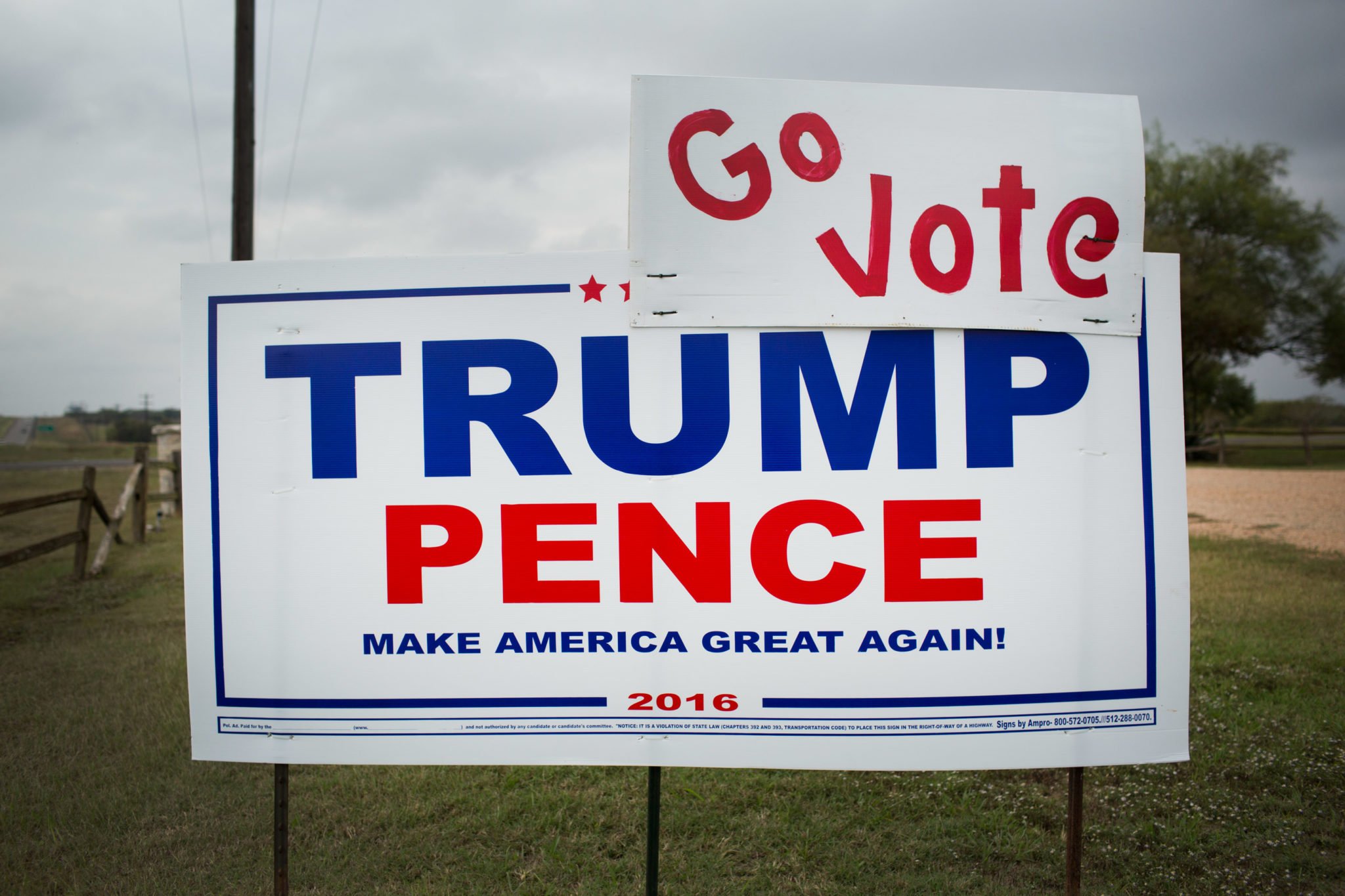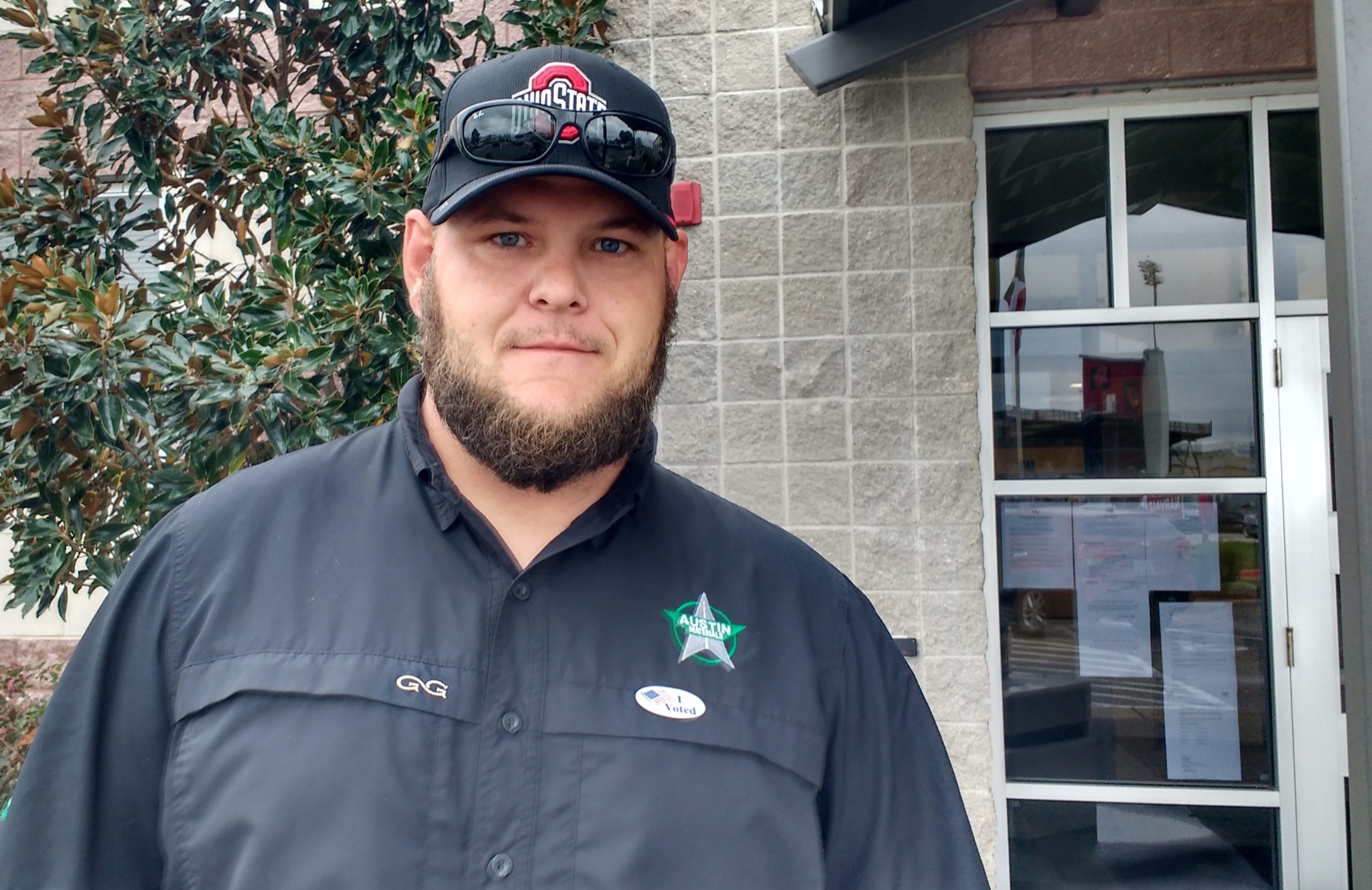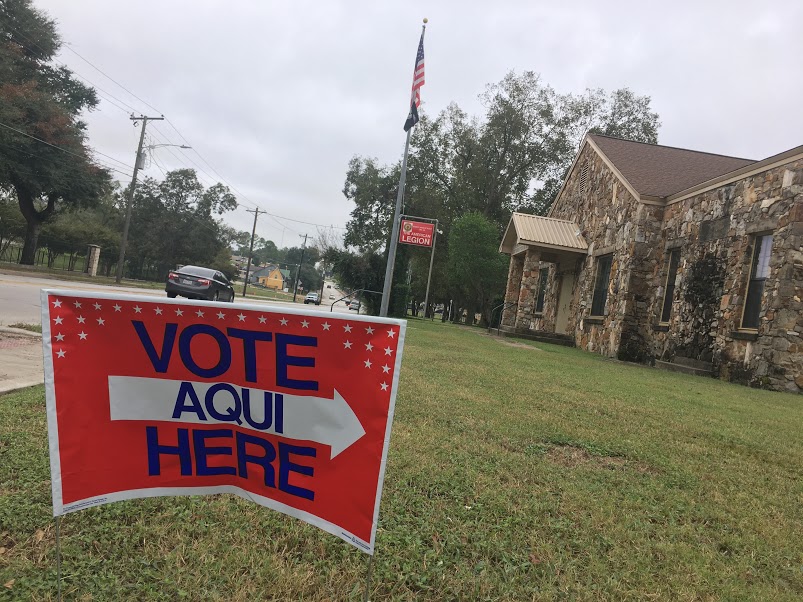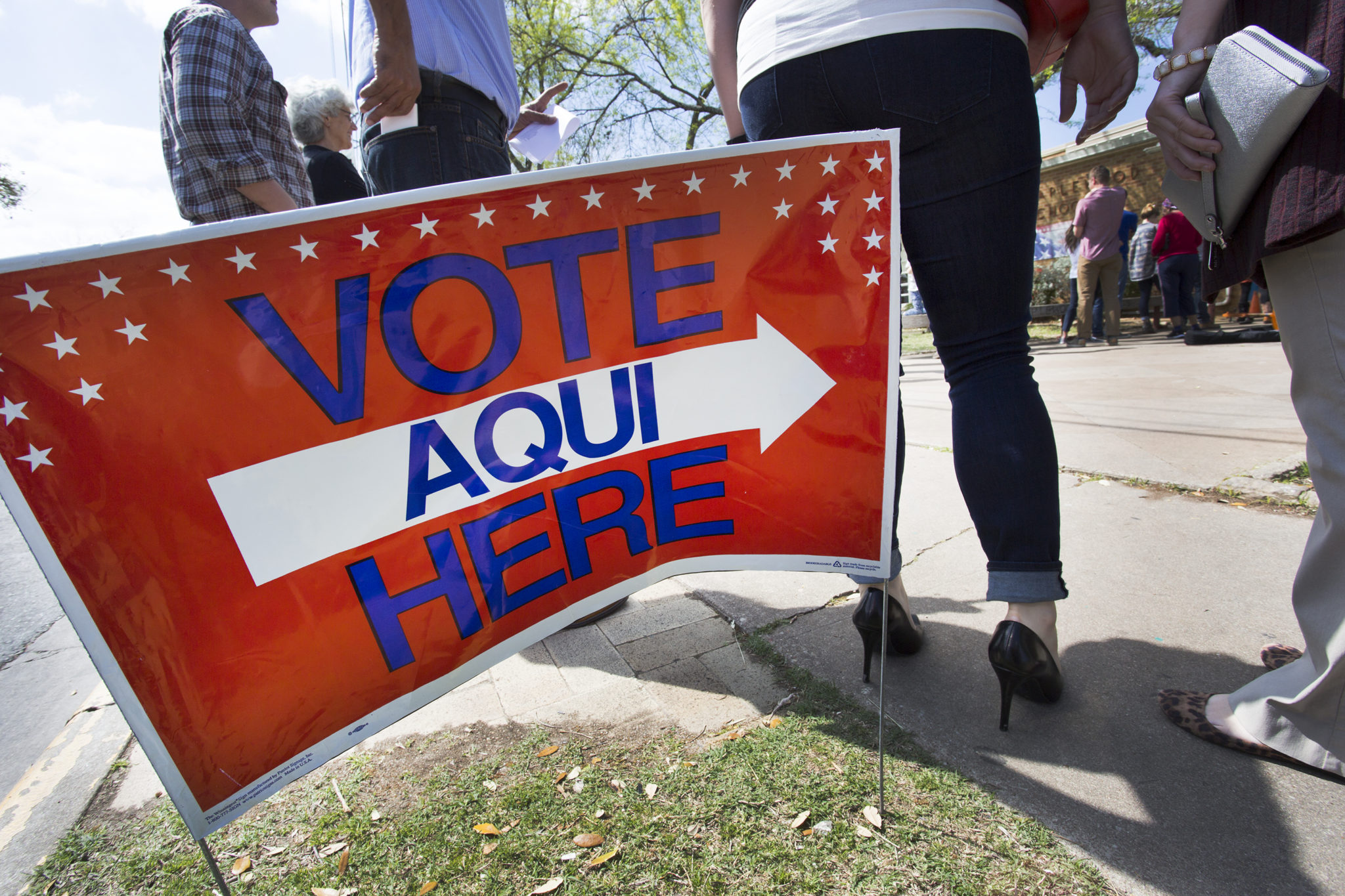
Huge Early Voting Turnout Could be Good News for Dems
Republicans ‘not as enthusiastic’ this year, say strategists.

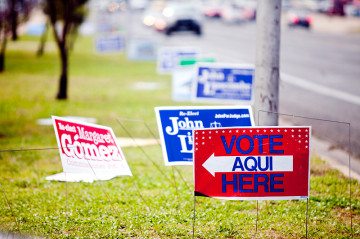
The first few days of early voting saw record turnout in Texas. By day four, more voters had gone to the polls than in the first seven days of voting in 2008. And historically, the early voting period is a good time for the Republican Party in Texas. Republicans typically vastly outperform Democrats, guaranteeing a greater percentage of banked votes for the GOP ahead of Election Day.
Not this year.
A larger percentage of Democratic voters have been turning out in the 20 most populous counties in the first seven days of early voting, according to an analysis by Derek Ryan, an Austin-based political strategist who works for Republicans.
“Not as many Republicans percentage-wise have shown up because they’re not as enthusiastic,” said Ryan.
His analysis found that by the time polls closed on Monday, 32 percent of early mail-in voters in the 20 biggest counties had a Democratic voting history, compared to about 22 percent at the same time in 2012. And a Houston Chronicle analysis found that in Harris County, about 36 percent of early voters last week had a Democratic primary history compared to 32 percent with a Republican history.
Those figures buck the trend, according to political analysts.
“Traditionally, Republicans vote early and Democrats vote on Election Day” in Texas, said Brandon Rottinghaus, a political science professor at the University of Houston. “If Democrats have a big lead going into Election Day, it could change races.”
Early voting often turns out the most committed and enthusiastic voters. Those rushing to the polls ahead of Election Day are often strongly partisan and tend to vote along party lines, Rottinghaus said. They also may not expect any surprises in the last few days before the election that could change their minds.
Despite October polls showing the two candidates within single digits in Texas, an early November poll puts Trump ahead by 12 points. Analysts say Republicans who are turned off by Trump may delay voting or sit out entirely, while the large Democratic turnout might be both due to voters resolutely opposed to Trump and excited over supporting the first female president.
The recent announcement that the FBI was looking into emails that may have links to Clinton’s email server could be influencing Republican-leaning voters, Ryan said. Those voters could be waiting to see what other surprises are in store.
“People who said, ‘I’ll go vote early next week,’ you’ll see them say, ‘Let me wait and see if there is a November surprise,’” Ryan said.
But it’s too early to tell whether the trend will hold through Election Day and any data crunching this early is incomplete. Ryan warned that the early polling figures cannot perfectly predict partisan identity or guarantee higher turnout for either party. For one, the surge in early voter turnout could be balanced out by low turnout on Election Day. Texas also doesn’t require voters to register as a Democrat or a Republican, so analysts must rely on a voter’s primary and previous general election history to parse how they might vote this year. While early voting trends have been accurate predictors of how a state might swing on Election Day, this year may be different, he said. About 40 percent of voters in the early voting period are also people with no primary history.
“We can’t say that because a certain percentage of Republicans show, it actually translates to Trump votes,” he said.
Still, the higher turnout figures have some Democrats cautiously optimistic.
Though the presidential race will likely still favor Trump in Texas, the higher early voter turnout portends well for Democrats in local races, said Colin Strother, a Democratic political strategist. The boost in voter turnout could provide an advantage to Democrat Pete Gallego, who lost the 23rd congressional district seat by fewer than 2,000 votes in 2014 and former state Representative Mary Ann Perez, who lost her seat by 152 votes to Republican Gilbert Peña in 2014.
“If vote totals continue on this trajectory, history shows that Democrats will do well,” he said.
